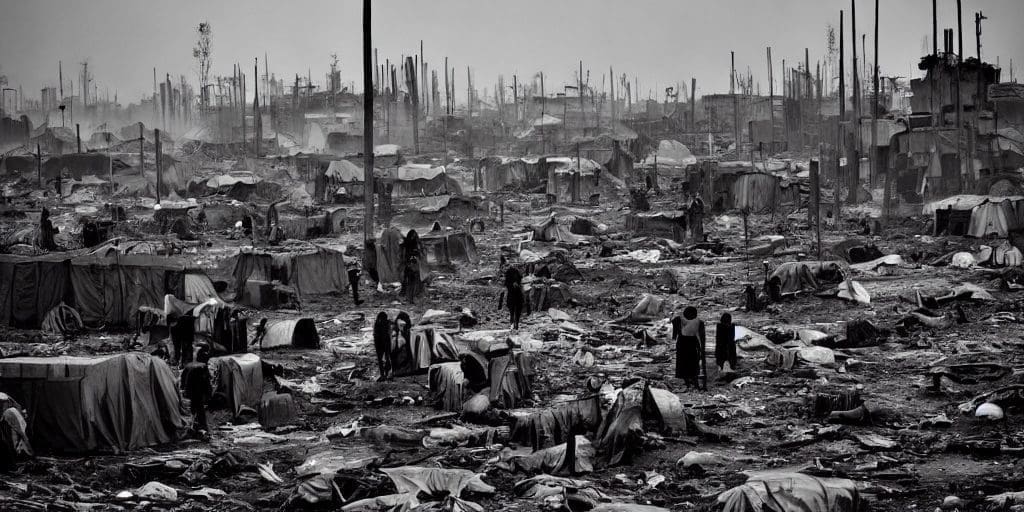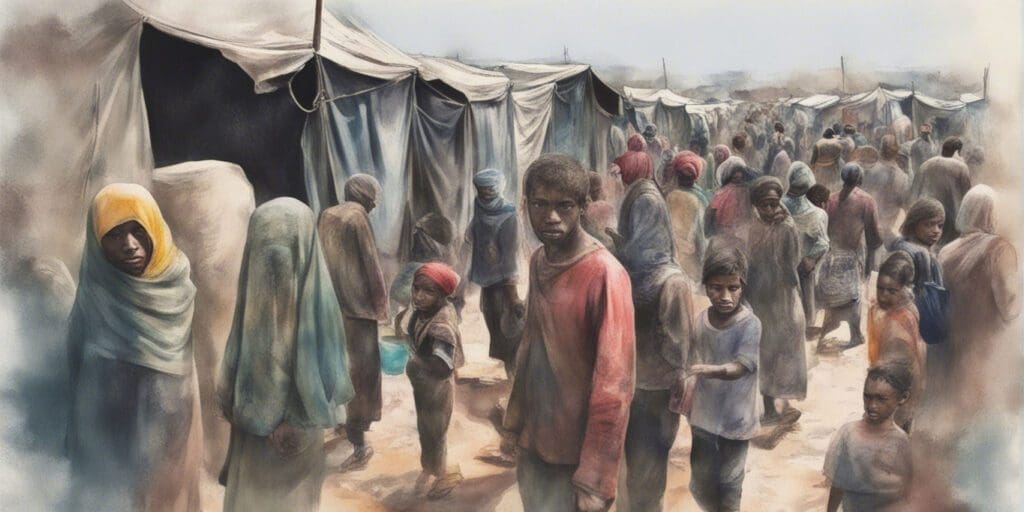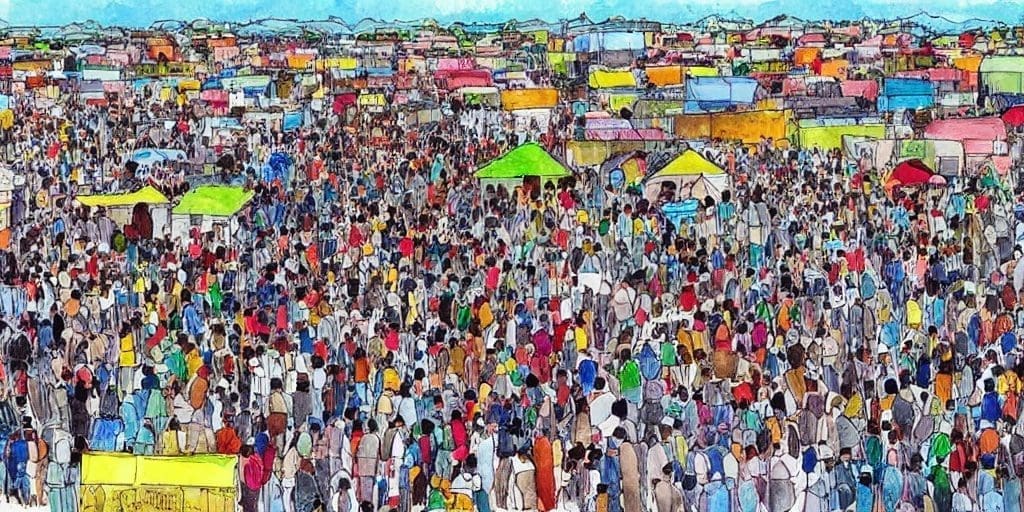Addressing the Global Crisis for Refugees
In a world often divided by borders and ideologies, the global refugee crisis stands as a stark reminder of our shared humanity and the pressing need for collective action. With millions displaced from their homes due to conflicts, persecution, and environmental disasters, the refugee crisis is not merely a regional or national issue – it is a global challenge that demands our immediate attention and unwavering compassion.
As we write about this critical issue, our thoughts drift back to the countless individuals and families whose lives have been upended by the harsh realities of displacement. Their stories are a testament to resilience and hope, even in the face of unimaginable adversity.

Table of Contents
The Human Stories Behind Refugees
The statistics are staggering. According to the United Nations High Commissioner for Refugees (UNHCR), there were approximately 108.4 million forcibly displaced people worldwide at the end of 2022 as a result of persecution, conflict, violence, human rights violations or events seriously disturbing public order. This number, unfortunately, has likely grown since then, given ongoing conflicts and new crises. Behind these numbers lie human stories of tragedy and triumph, of people fleeing violence, persecution, and the devastating consequences of climate change.
One of the most pressing challenges of the refugee crisis is the burden it places on host countries. Developing nations often bear the brunt of refugee influxes, straining their already limited resources. This can lead to social and economic tensions, further destabilizing already fragile regions. As we grapple with this issue, we must acknowledge the tremendous generosity displayed by these host nations. Countries like Turkey, Pakistan, and Uganda have taken in millions of refugees, demonstrating a commitment to humanity that should inspire us all.

A Global Responsibility
But the refugee crisis is not a burden exclusive to those nations directly impacted. It is a global responsibility that requires a coordinated response from the international community. We cannot ignore the moral imperative to offer assistance and protection to those who have been forcibly displaced.
First and foremost, we must address the root causes of displacement. This involves diplomatic efforts to resolve conflicts, prevent atrocities, and promote peace and stability in volatile regions. It also entails global cooperation to combat the effects of climate change, which is increasingly driving displacement due to rising sea levels, extreme weather events, and resource scarcity.

International Humanitarian Law
Additionally, we must strengthen our commitment to international humanitarian law. The principle of non-refoulement, which prohibits the forced return of refugees to a country where they face persecution, is a cornerstone of refugee protection. It is essential that nations uphold and respect these principles, ensuring the safety and dignity of refugees.
Furthermore, we must expand legal pathways for refugees to seek asylum. Many refugees resort to dangerous and illegal routes in their quest for safety. By providing more opportunities for legal migration, we can reduce the risks associated with irregular migration and human trafficking.
Beyond immediate protection, we must invest in the long-term well-being of refugees. Access to education, healthcare, and employment opportunities is crucial for refugees to rebuild their lives and contribute to their host communities. This not only benefits refugees but also fosters social cohesion and economic development.
On the subject of resettlement, wealthier nations must do more to share the responsibility. The majority of refugees end up in low and middle-income countries, which often lack the resources to provide adequate support. By increasing resettlement quotas and offering financial assistance, affluent nations can help alleviate the strain on host countries and provide vulnerable refugees with the chance for a better future.

Harnessing the Potential of Refugees
It’s important to recognize that refugees bring with them a wealth of skills and talents. They are not just victims but also contributors to their host societies. By embracing diversity and fostering inclusivity, we can harness the potential of refugees to enrich our communities and economies.
While these solutions may seem idealistic, they are not unattainable. History has shown that when the global community comes together with purpose and determination, progress can be made. The 1951 Refugee Convention and its 1967 Protocol are testament to international consensus on refugee protection.
A Defining Challenge of Our Time
Nevertheless, the refugee crisis remains a complex and multifaceted challenge that requires sustained commitment. It demands not only resources but also a shift in mind-set—one that recognizes the shared responsibility we have towards our fellow human beings, regardless of their nationality or background.
The global refugee crisis is not a distant issue that can be ignored. It is a defining challenge of our time, one that speaks to the very core of our humanity. To address this crisis effectively, we must tackle its root causes, strengthen international protection mechanisms, and ensure that refugees are not merely survivors but contributors to our global community. It is a daunting task, but it is also an opportunity for us to show compassion, solidarity, and leadership in a world that sorely needs it.















































What do you think?